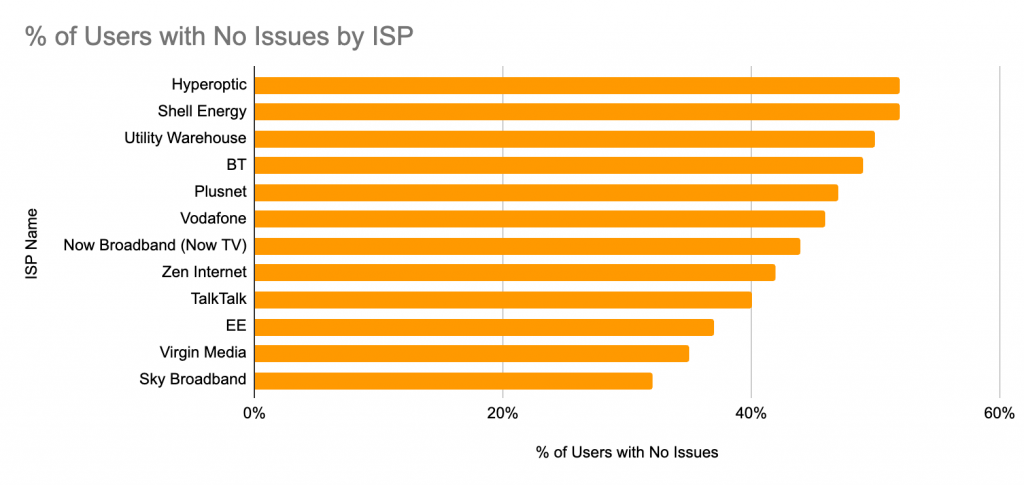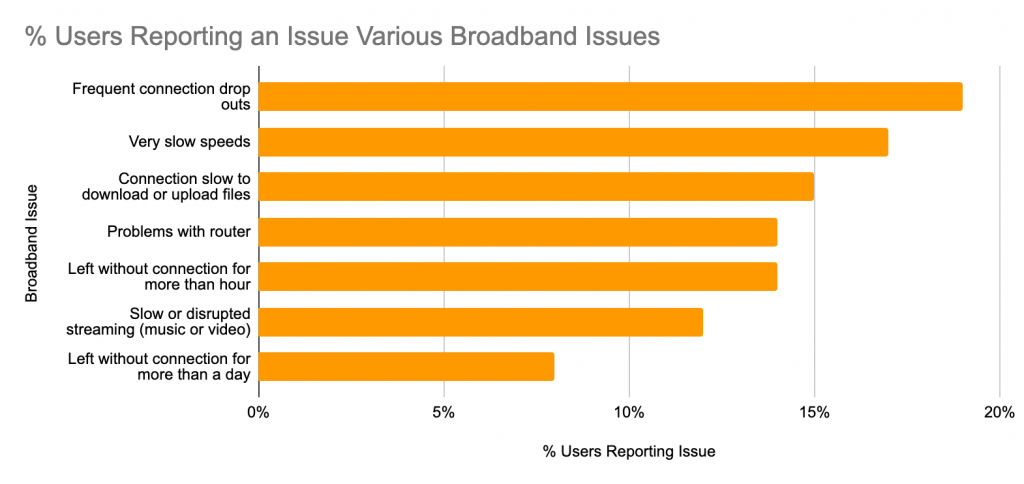Internet benchmarking firm Opensignal, the internet benchmarking firm, has published their “definitive” 2024 Fixed Broadband Experience report this December. The report looks at various UK internet service providers and then separately across 12 of its regions (inc. Scotland, Wales and Northern Ireland), judging them in terms of performance indicators.
With people all over the country potentially relying on a strong, reliable broadband service to connect with family and friends this Christmas – Which broadband provider came out on top for 2024? This latest Opensignal report found Virgin Media to have the top performance scores on a national level.
However, when looking at individual regions, the results differed.
How do Opensignal collect their performance data?
The data used in December’s Opensignal round-up of 2024 report uses crowdsourced data collected via their benchmarking app and services by end-users. It was collected between the 1st July and 28th September 2024.
It’s worth noting that the following things could also affect any testing of broadband performance:
- Poor home wiring (ADSL and FTTC lines)
- The end-user’s choice of package (e.g. 1Gbps could be available, but people may pick a slower option)
- Local network congestion
- Slow home Wi-Fi
Interestingly, the report also includes data from some mobile broadband providers and satellite broadband services, providing notable comparisons between the more traditional broadband providers and the alternatives for places where they don’t work so well. For example, the report has data from users utilising Three UK and Starlink mobile and satellite broadband services.
How does the Opensignal report on UK broadband categorise user experiences?
The report categorises user experience of broadband performance based on different measurements:
- Consistent Quality
- Download Speed
- Upload Speed
- Video Experience
- Reliability Experience
Which ISP’s have provided the best broadband this year?
As we said at the start of this article, Virgin Media came top overall, rating the best user experiences across all 5 of the above categories.
In simple terms, out of all of the UK’s broadband providers, users with Virgin Media during the last quarter of 2024 had:
- The best available experience when streaming video
- The fastest average download and upload speeds
- The most reliable connection
- The most consistent fixed broadband experience
If we take a look at 2 of the categories that are perhaps most of interest – Consistent Quality and Download Speeds – We can compare and rank the UK ISP’s.
| Consistent Quality | |
| Virgin Media | 90.4 |
| Vodafone | 88.4 |
| Plusnet | 87.1 |
| BT | 86.6 |
| EE | 83.1 |
| TalkTalk | 82.6 |
| Sky Broadband | 76.9 |
| Three UK | 72.3 |
| Download Speeds Mbps | |
| Virgin Media | 157.4 |
| Vodafone | 77.5 |
| BT | 62 |
| Three UK | 54.8 |
| Sky Broadband | 52.5 |
| Plusnet | 52.4 |
| TalkTalk | 48.8 |
| EE | 45.9 |
It’s worth pointing out that almost all of the customer base of Virgin Media are in urban areas and are on broadband lines of 100Mbps or faster, which helps massively in this type of study.
At the opposite end of this, providers that have connections from varied broadband technologies (ADSL, FTTC, FTTP) with a mixture of slower and faster lines are going to be at a bit of a disadvantage.
What do Virgin Media have to say about being awarded ‘best’ ISP for 2024 by Opensignal?
Their Director of Connectivity, Gareth Lister, said:
“We’re committed to providing our customers with fast and reliable connectivity, so being recognised by Opensignal as the best performing provider across all five categories is fantastic news. It is testament to our ongoing investment and hard work to give our customers the best broadband experience possible.”
Regional data shows smaller ISP success
When looking at the data with a more regional focus, we start to see more of the smaller UK internet service providers and alternative networks securing wins across the different categories we mentioned earlier.
Networks like:
- Hyperoptic
- YouFibre (Netomnia)
- Zen Internet
- Brsk
- Toob
- CommunityFibre
- Gigaclear
For the London area, CommunityFibre is a strong choice for consistent fixed broadband experience. Up in Scotland, the winner of the most performance categories was Hyperoptic broadband. And in the north of England it’s YouFibre that outperforms the other ISP’s. For Wales and Northern Ireland, Virgin Media were once again the most awarded provider.
As much as we would love to lay out all the results by region for you here, it would take us all day! But you can have a read of the full report here, where you can check out your local region and see which broadband providers are successful in your area.




